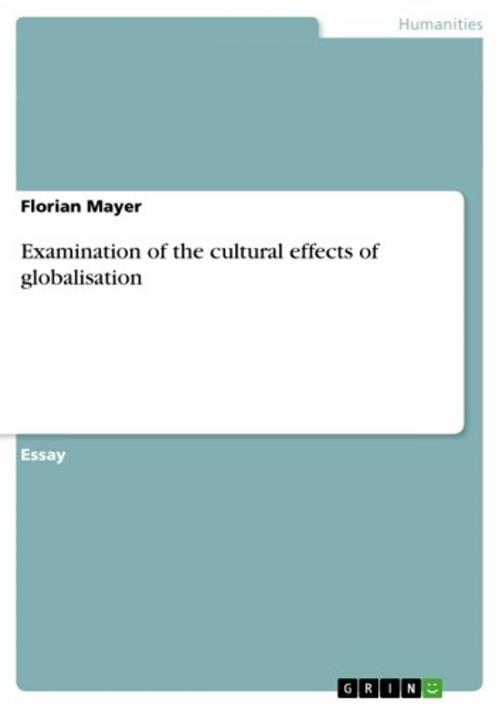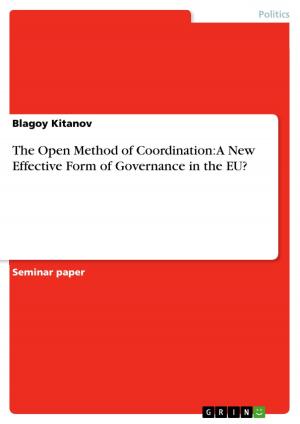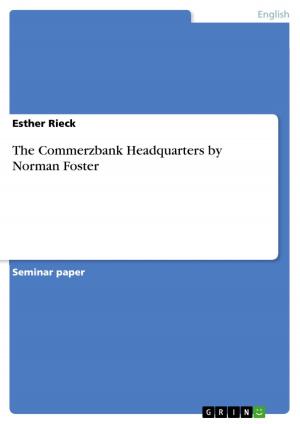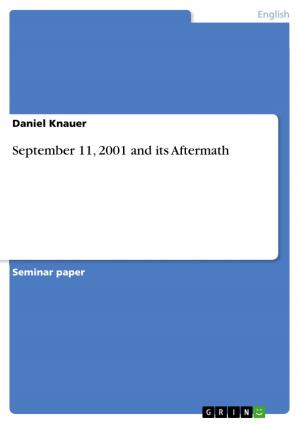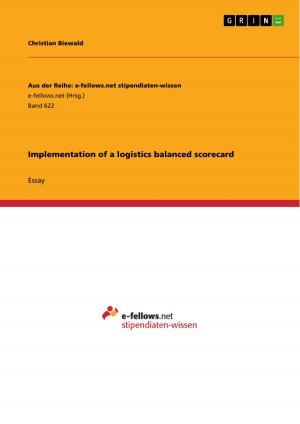Examination of the cultural effects of globalisation
Nonfiction, Social & Cultural Studies, Social Science, Cultural Studies, Ethnic Studies| Author: | Florian Mayer | ISBN: | 9783638158466 |
| Publisher: | GRIN Publishing | Publication: | December 10, 2002 |
| Imprint: | GRIN Publishing | Language: | English |
| Author: | Florian Mayer |
| ISBN: | 9783638158466 |
| Publisher: | GRIN Publishing |
| Publication: | December 10, 2002 |
| Imprint: | GRIN Publishing |
| Language: | English |
Essay from the year 2001 in the subject Cultural Studies - Basics and Definitions, grade: 1 (A), University of Leeds (Department for Communication and Cultural Studies), course: Communication & Cultural Studies, 26 entries in the bibliography, language: English, abstract: After, what has been a `very long, uneven and complicated process and is currently called globalisation', world capitalism and the underlying system of sovereign states have become `the first historical system to include the entire globe within its geography'. The brands, images, and the cultural output of transnational companies of mainly North American origin are flooding almost every part of the world. What George Ritzer has called McDonaldization, `the rationalization of everyday interaction and individual identity' - the principles of a fast food restaurant that `more and more sectors of society are adopting transforms national economies into one global, interdependent economy'. As a consequence, activities, which were previously carried out within a national or regulated international framework, will from now on be carried out globally, in accordance with the needs of the global marketplace, which is steadily growing. By 1980, it was estimated that there were over 10.000 transnational corporations of all national origins, and by the early 1990s more than three times as many. In the media sector the vision or the nightmare of a global business would look like this: one single mega-corp, which delivers down its cable, to our homes, every intellectual morsel (it thinks) we need. The films, sit-coms and documentaries it has made; the news it makes; the information and e-mail services it controls; the chat-rooms it monitors and the celebrities it has made famous. In the following this essay will examine how true this fantasy of total control is in reality by looking at two German conglomerates, KirchGruppe and Bertelsmann AG, which are currently expanding in Europe and the United States. Furthermore, the cultural effetcs of globalisation will be looked at in this context.
Essay from the year 2001 in the subject Cultural Studies - Basics and Definitions, grade: 1 (A), University of Leeds (Department for Communication and Cultural Studies), course: Communication & Cultural Studies, 26 entries in the bibliography, language: English, abstract: After, what has been a `very long, uneven and complicated process and is currently called globalisation', world capitalism and the underlying system of sovereign states have become `the first historical system to include the entire globe within its geography'. The brands, images, and the cultural output of transnational companies of mainly North American origin are flooding almost every part of the world. What George Ritzer has called McDonaldization, `the rationalization of everyday interaction and individual identity' - the principles of a fast food restaurant that `more and more sectors of society are adopting transforms national economies into one global, interdependent economy'. As a consequence, activities, which were previously carried out within a national or regulated international framework, will from now on be carried out globally, in accordance with the needs of the global marketplace, which is steadily growing. By 1980, it was estimated that there were over 10.000 transnational corporations of all national origins, and by the early 1990s more than three times as many. In the media sector the vision or the nightmare of a global business would look like this: one single mega-corp, which delivers down its cable, to our homes, every intellectual morsel (it thinks) we need. The films, sit-coms and documentaries it has made; the news it makes; the information and e-mail services it controls; the chat-rooms it monitors and the celebrities it has made famous. In the following this essay will examine how true this fantasy of total control is in reality by looking at two German conglomerates, KirchGruppe and Bertelsmann AG, which are currently expanding in Europe and the United States. Furthermore, the cultural effetcs of globalisation will be looked at in this context.
